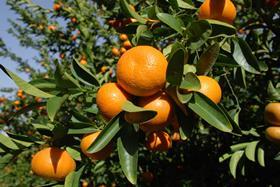
South Africa’s citrus industry has raised concerns about the South African Department of Agriculture, Forestry and Fisheries’ (DAFF) decision to delegate the responsibility for phytosanitary certification activities – namely orchard inspections, packhouse inspection and issuance of phytosanitary certificates – to the Perishable Products Export Control Board (PPECB) for the 2017 export season.
The industry, through its grower body the Citrus Growers Association (CGA), outlined its concerns in a letter to citrus growers which explained DAFF’S reasons for the decision and outlines steps which needs to be taken during implementation in the coming season, which will kick off early in March.
The CGA said in its letter that the export of South African citrus to the European Union has, since 2012, been faced with additional phytosanitary measures for fruit originating outside the CBS pest free areas in South Africa.
Dealing with these measures have put strain on the phytosanitary regulatory system of the Department of Agriculture, Forestry and Fisheries, known as the National Plant Protection Organisation of South Africa (NPPOZA).
“The European Commission’s Health and Veterinary Audits and Analysis (HVAA), formerly known as European Union Food and Veterinary Office (FVO), conducted two audits on the South African compliance activities to the EU measures in 2015 and 2016 respectively since the implementation of new measures,” said the CGA. “In both audits, concerns were raised over the NPPOZA’s capacity to fully comply with the EU measures due to limited human resources. Thus sustaining these activities and keeping the EU citrus market open is not feasible without adequate resources.
'With its current limited financial resources, DAFF decided to delegate the responsibility for phytosanitary certification activities (orchard inspections, packhouse inspection and issuance of phytosanitary certificates) to the Perishable Products Export Control Board (PPECB) for 2017 export season,' the group concluded.
The CGA outlined that this is seen as a practicable service delivery option, thus preventing the risk of losing the EU citrus market and thereby rendering citrus industry uncompetitive.
“The key value (which should arise) out of this delegation would be to relieve DAFF capacity in terms of day-to-day operational activities; have a 'one-stop-shop' for the growers, exporters and forwarding agents and reduce errors and turnaround times for certification.”
The CGA says DAFF have advised the industry that costs will be R 685 per orchard. DAFF have further advised that they will no longer be charging for EU Phytosanitary Certificates, which in 2016 was R189 per Phyto Certificate.
In its response, the CGA’s executive committee said they are concerned about losing the expertise DAFF has built up over the years, which has significantly mitigated CBS risk to the EU. They would also like to see a Service Level Agreement between CGA and PPECB, ensuring that the level of service is acceptable.
“The cost is too high, and way above 2016 levels,” noted the CGA executive. “This is a serious concern and will be challenged. More analysis is being done by the CGA to determine the quantum of the increase.”
The CGA continued that it would be better if cost is reflected as rand per hectare and not rand per orchard. “Orchards differ significantly in size. For fairness and transparency a rand per hectare figure is deemed more appropriate.”
According to the CGA, growers should be given an opportunity to take responsibility. “Most growers have on-farm personnel that carry out extensive CBS scouting and are (currently) rewarded for identifying orchards with CBS. There must be a system that recognises this activity and thereby reduces the cost.”
In practical terms it means that growers who are deemed to be responsible should receive discounts because they are able to do part of the work.
The CGA also said it had concerns regarding the experience and abilities of PPECB inspectors.
“There must be adequate training and shadowing,' the group explained. 'DAFF and PPECB have assured CGA that this will take place.” The CGA also want to see an interim period throughout which any grower challenges are considered before orchard removal.
The change comes in the wake of an extremely successful South African season in the EU as far as CBS is concerned, which bolstered the industry’s argument that South Africa’s citrus does not pose any threat to EU citrus growers and that the country is treated unfairly by the bloc. It is expected that the matter will now at some point reach the WTO for a final decision on the matter.



